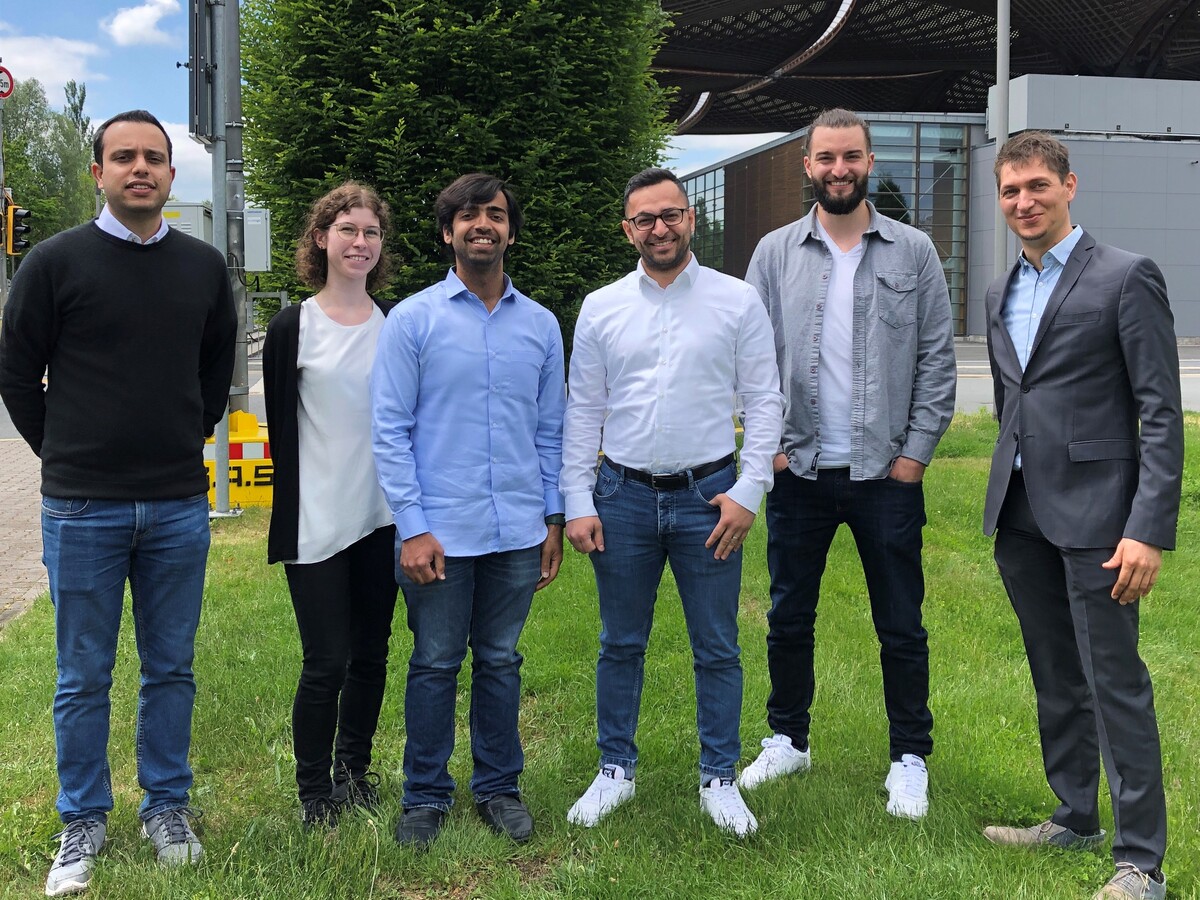Research Focus
Within the Junior Research Group, a sensor-based concept for the identification of critical states in PEM fuel cells is being developed, which will enable the development of a highly efficient fuel cell system with a long service life. The development and optimization will be based on the IPEK X-in-the-loop approach and will allow coupling of the cell, stack and system levels. The individual levels can be represented both virtually in the form of simulation models and physically in the form of test setups. By coupling these levels via virtual-physical interfaces a continous comparison within the X-in-the-loop framework is achieved. For this purpose, adapted modelling approaches and validation environments with specific measurement instrumentation is needed.
The following research topics will be the focus of the Junior Research Group:
- Cell level: Connection of flow field and gas diffusion layer
► Development of a multi gradient flow field with improved transport properties- The efficient transport of the reaction gases from the manifold structure to the catalyst-coated membrane, as well as the removal of the resulting water, have a strong influence on the performance of a fuel cell.
- To optimize these transport mechanisms, flow structures in the gas diffusion layer are developed and investigated at the cell level.
- A particular focus is placed on the boundary region between the gas diffusion layer and the bipolar plate in order to ensure a good transition of the reaction gases from the manifold structure to the membrane.
- Stack level: Identification of local critical conditions during dynamic operation
► Sensor based aquisition of operating conditions on the bipolar plate-
Especially the efficiency of the polymer electrolyte membrane fuel cell, but also the degradation, strongly depends on pressure, temperature, humidity, and current density distributions within the active reaction area of the bipolar plate.
-
Consequently, the internal parameters and gradients (pressure, temperature and humidity as well as current density gradients) have to be determined by integrated sensor systems and simulations and subsequently a general correlation between the gradients and the influencing variables, which in particular affect the efficiency and degradation of the fuel cell, has to be worked out. Finally, optimization approaches can be derived from these findings.
-
- System level: Counteraction and prevention of critical conditions
► Development of a robust and cyclic operating strategy- With increasing computing power, it is possible to predict unfavorable operating conditions and scenarios. These can represent critical states for the fuel cell as well as for the fuel cell system.
- By means of an intelligent fuel cell control unit, the operating parameters (pressure, temperature and humidity) can be adjusted. Critical conditions are thus avoided, which at the same time allows the required performance to be maintained.
- Measurement methodology: Transfer from direct to indirect measuement value aquisition
► Development of equivalent indirect measurement categories- Consequently, the identification of such critical states plays an important role in the development of a highly efficient fuel cell system. This is exactly the focus of the indirect measurement methodology.
- The water and thermal management, the gas distribution as well as the mechanical structure of the fuel cell are analyzed specifically.
Bachelor / Master Thesis
The current thesis topics for bachelor and master programs of the research group "Sensor Based Fuel Cell Development " can be found here.
Job advertisements
The current job offers as well as research assistant openings of the research group "Sensor Based Fuel Cell Development " can be found here.
Courses
Information about the current course "Design of Fuel Cell Systems (AvB)" of the research group "Sensor Based Fuel Cell Development " can be found here.
Provisional management Sensor Based Fuel Cell Development










